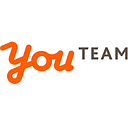Privacy-First Culture: Tips on How to Create It in Your Remote Team
Cookies and many other tracking tools became a prominent part for businesses in managing users’ data across the web, which brought some government regulations into effect.
Another issue that took part in changing the way business used to work in the global pandemic. Building a privacy-first culture is one of the top priorities nowadays in many companies which had to switch to remote work and more use of web applications.
What Is a Privacy-First Culture?
First of all, it is important to know what privacy is. Privacy is a process when a company uses personal data and also with processes we collect data.
A privacy-first culture means that the priority of every member of the business is data and its safe storage. Everyone knows how to manage, use and save personal data safely and how long this data should be kept.
How to Create a Privacy-First Culture for Your Remote Team
Below we will give you some tips and practices on how to effectively create a privacy-first culture.
Follow Privacy Rules and Regulations
Compliance in storing data is one of the most important rules to be followed. If talking about GDPR (General Data Protection Regulation) and the auditing process of the company, if the company is keeping data that is not mentioned for users to be kept and the auditors notice it, the company will surely be fined as being not GDPR compliant.
To prevent the company from this, it is a good way to organize training courses where all the aspects of legal practices and requirements needed exactly to this company will be discussed and covered.
Offer Cybersecurity Training
To prevent your business data and users’ data from being stolen and corrupted by malware, the company needs to ensure that every team member knows how to spot such cases. For being sure of your remote workers’ competence, you can offer cybersecurity courses where they will cover such common lessons as how to spot fraudulent emails; how to keep their data safe; how to recognize suspicious attachments.
Use Virtual Private Networks (VPNs)
The use of VPNs will not only bring you anonymity but also will help to higher the level of privacy. Below you can see how they work and their pros.
- Masking of IP addresses helps to eliminate tracking.
- Such tools create private connections away from public internet connections what makes the connection a lot safer.
- Encrypted connections make it harder to access your information by external parties.
These steps and options will help to keep your connection and users’ data protected from being tracked and so accessing your private information.
To learn more about building a privacy-first culture in your team, read our blog.
